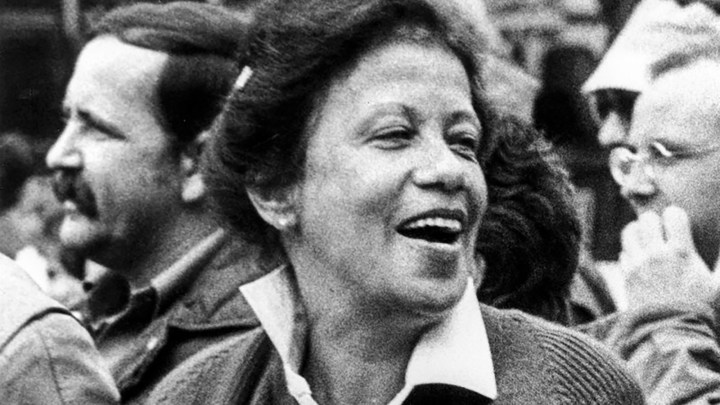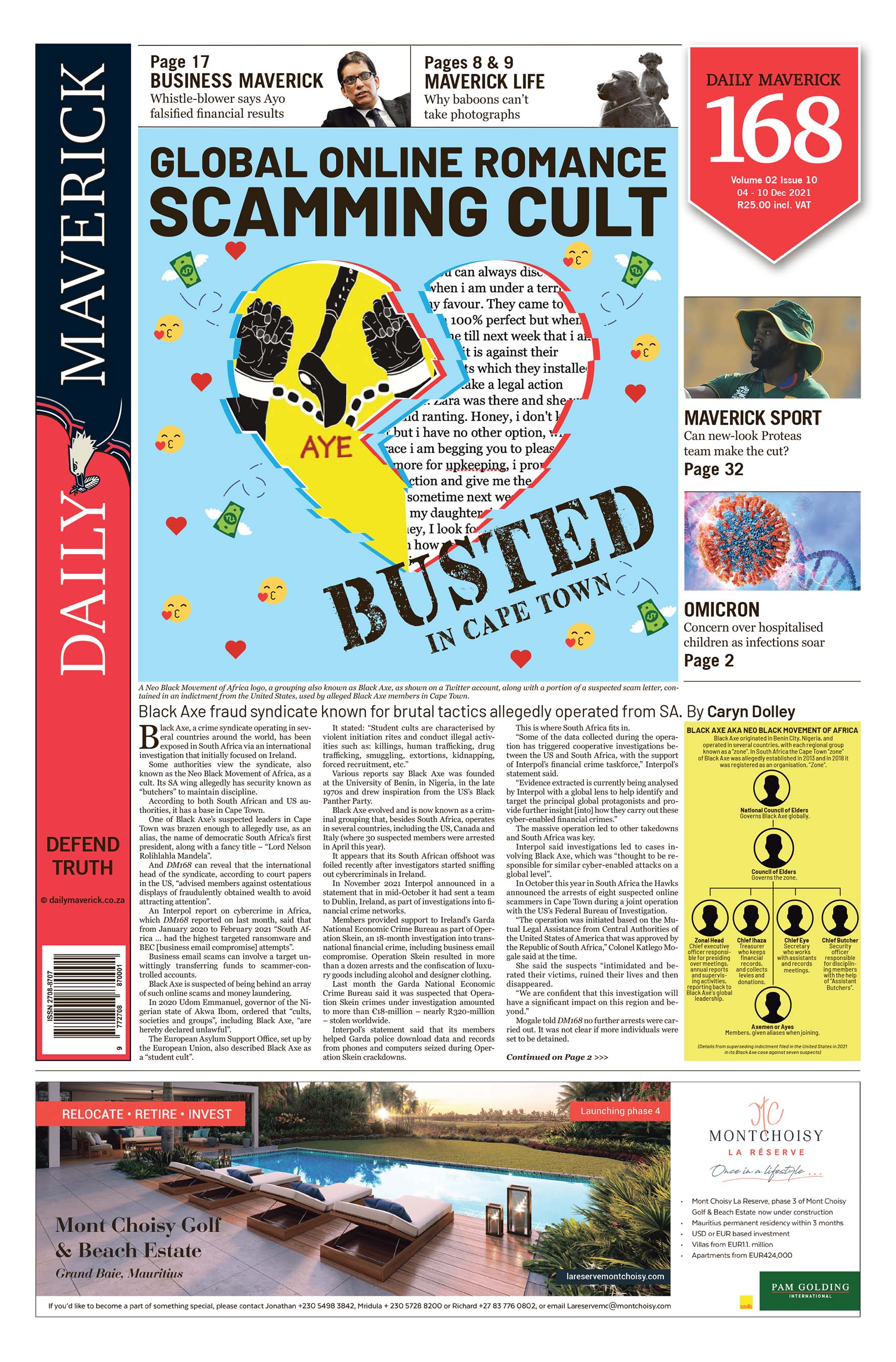MEDIA MATTERS
No stone left unturned: Civil society and journalists must fight suppression at the SABC

The documentary Murder in Paris by Enver Samuel is one of the most moving you could watch. In a surprise move, it was aired on SABC this year, on Human Rights Day. A surprise, given the doccie’s unstarry-eyed critique of the ANC.
Stones are slowly turning to unearth the truth in the murder of Dulcie September, an anti-apartheid activist and teacher from the Cape Flats who was killed in exile in France, in the 1980s. No one has been found guilty – yet.
The documentary, Murder in Paris by Enver Samuel, which showcases the clues, is one of the most moving you could watch.
In a surprise move, it was aired on SABC this year, on Human Rights Day. A surprise, given the doccie’s unstarry-eyed critique of the ANC. After all, historically the public broadcaster is known to, more often than not, bend to the will of the board, which in turn succumbs to that of political power, or a political faction in power.
It was a privilege to be on a panel recently to discuss the documentary showing the layers of deceit, cover-ups, sexism and the political inaction to date at the South African Communications Association’s (Sacomm’s) annual conference in 2021.
Dulcie September was the ANC’s representative in Paris. She popularised the liberation movement by telling the story in Europe of apartheid’s brutality, the death squads, killings, imprisonments, tortures, solitary confinements. Quite by chance, she intercepted a telephone call, stumbling across shenanigans between the apartheid regime and France on arms deals. Then, she started looking for facts, which took her to Pelindaba nuclear plant, and international collusions.
September reported to the ANC in exile that she was being followed, and her life could be in danger. Her superiors told her she was being “paranoid” and “hysterical”. After work, as she was about to enter her flat in Paris, she was gunned down, shot in the face five times. It is now a 33-year-old case. No one has been prosecuted for her murder. Why? The film is littered with clues, pointing to a witch-hunt, while showing the power of excellent investigative journalism.
Evelyn Groenink, investigative journalist and author of Incorruptible: The Story of the Murders of Dulcie September, Anton Lubowski and Chris Hani, who features strongly in the film, states that it was always assumed the apartheid regime murdered September. However, when she opened her mind to other possibilities she found new clues, then other facts.
This has echoes with the era of the information disorder today; something just has to have a little bit of truth in it for it to spread. The apartheid regime was wicked with its death squads and assassinations, so it was easy to go down the path Groenink first took. Two years after dogged determination she discovered the arms deal connections.
September was gunned down because she was on to something; Aziz Pahad (one of her ANC bosses) says this himself, in the movie. Both Samuel and Groenink articulate in different ways that if September had been a man she would not have been labelled a drama queen.
Now that France legally recognises that apartheid was a crime against humanity, the case can be reopened. And it has. When Emmanuel Macron visited SA this year, he said the matter “would be looked into”. Whatever that means, it’s some little acknowledgment.

Then South African president Jacob Zuma delivers a speech after a visit at the Dulcie September High School on 3 March 2011 in Arcueil, outside Paris. (Photo: EPA / BERTRAND LANGLOIS / POOL)
It is also now up to civil society to hold the powerful to account, and lobby for this investigation not to die. Samuel wrote to President Cyril Ramaphosa to ask what the ANC government is doing about the unsolved murder. But there has been no response from his office via spokesperson Tyrone Seale.
This film is a media act of activism. Its method is to unmask footage from the past, trace people using the internet, connect with the anti-apartheid movement in Europe and interview family members in Cape Town. The archival material is fascinating: French TV, September’s speeches, her voice and nuances show us who she was – far from a hysterical drama queen. After all, the murder indicates she was spot-on to be worried about her safety. The emotionally evocative film peels back layer after layer from lack of political action, witch-hunts and blatant sexism to international collusion in infamous arms deals.
A long time ago, the then ANC’s president Oliver Tambo said “no stone will be left unturned” to find September’s murderer. This has not happened. Today there are small stones turning in a progressive direction: the public broadcaster – the SABC – shows the documentary, attesting to media freedom at the largest media in SA.
But politics is fluid today. Just as quickly as these stones turn, they turn back again. The ANC, after suffering serious blows in the local government elections, showed some humility. This was acknowledged in the media. Then, in a sad about-turn, the organisation reverted to type when its Fikile Mbalula and Jessie Duarte berated the SABC for contributing to its losses.
The SABC, of course, was doing its job by highlighting failures of service delivery. The ANC does not own the SABC. Within days, SABC head of news and editor-in-chief, the fair and balanced Phathiswa Magopeni, who was also at the helm when the Murder in Paris documentary was aired, suddenly and “coincidentally” has spurious disciplinary charges brought against her. Her hearing is due in the first week of December. This is obfuscation, deflection, Scapegoatism 101.
From one witch-hunt to another. Civil society and journalism must fight this latest intervention, or suppression, at the SABC, leaving no stone unturned. DM168
Glenda Daniels is an associate professor in Media Studies at Wits University. She sits on the executive of Sacomm, the Press Council and Sanef, but these views are her own.
This story first appeared in our weekly Daily Maverick 168 newspaper which is available for R25 at Pick n Pay, Exclusive Books and airport bookstores. For your nearest stockist, please click here.


















 Become an Insider
Become an Insider
Comments - Please login in order to comment.